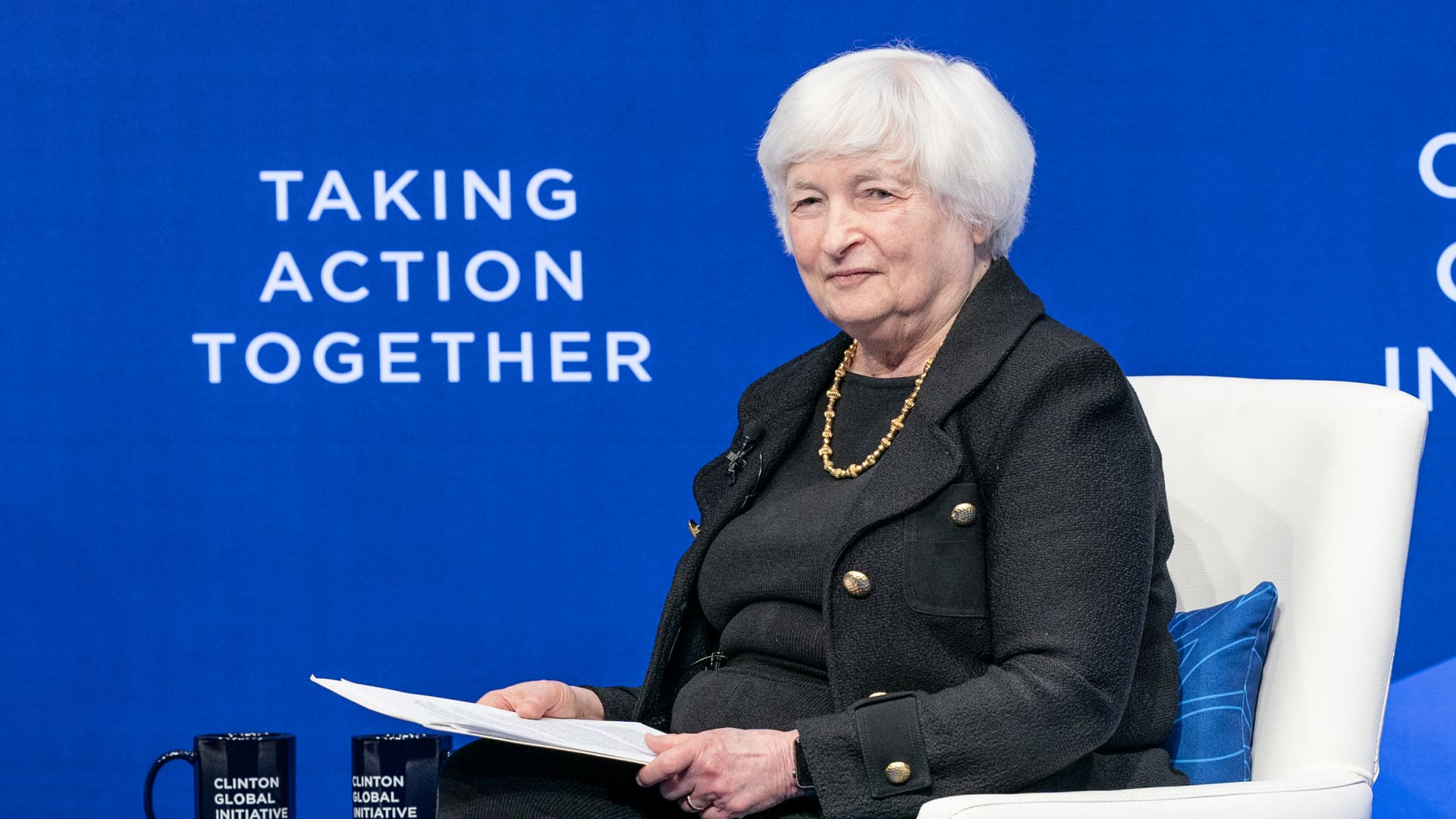The US Treasury Secretary, Janet Yellen, expressed concerns about China's economic challenges and its potential impact on the global economy, while also noting that China has the policy tools to address these challenges.
Treasury Secretary Janet Yellen believes the US economy is on a path that will prevent a recession while maintaining control over inflation, as polls show increasing optimism among Americans; she also expects a strong labor market despite slower economic growth.
Treasury Secretary Janet Yellen and Goldman Sachs may be optimistic about a "soft landing" scenario for the US economy, but the author remains skeptical due to factors such as a deeply inverted yield curve, declining Leading Economic Indicators, challenges faced by the consumer, global growth concerns, and the lagging impact of the Fed's monetary policy, leading them to maintain a conservative portfolio allocation.
U.S. Treasury Secretary Janet Yellen sees no signs of an economic downturn but warns that failure to pass legislation to keep the government running could slow economic momentum.
US Treasury Secretary Janet Yellen believes that despite the national debt nearing $33 trillion, the federal government's debt burden remains under control due to the net interest as a share of GDP remaining at a reasonable level. However, critics warn of the potential risks of a growing debt and credit bubble. Additionally, Yellen hopes for a quick resolution to the United Auto Workers' strike, stating that the economy remains strong overall.
U.S. Treasury Secretary Janet Yellen warns that a potential government shutdown would harm economic progress, impacting key programs for small businesses and children and delaying infrastructure improvements.
Treasury Secretary Janet Yellen expresses cautious optimism about the potential of AI to boost productivity while emphasizing the importance of U.S. investment in other areas, highlighting the impact of recent spending bills. She also discusses the economic outlook, fiscal responsibility, interest rates, and the need for derisking in the U.S.-China relationship.
President Joe Biden attributes Americans' dissatisfaction with the economy to negative media coverage, despite the high number of job gains in September and improved financial conditions for many individuals. The entertainment industry experienced a decline in employment amid strikes, while other sectors saw positive growth. Economists express surprise at the strong job growth, but concerns arise regarding potential interest rate increases by the Federal Reserve.
President Biden criticized the media for focusing on negative stories and claimed that the American people are better off financially, despite overseeing the highest non-pandemic annual deficit in US history and confusing the terms "debt" and "deficit."
Janet Yellen, the Treasury Secretary, believes that no existing currency can replace the US dollar as the global reserve currency, despite its recent decline, but warns that its share may continue to decrease as countries diversify; however, there are alternative investments like gold, fine art, and real estate that can help mitigate risks associated with the dollar's decline.
Treasury Secretary Janet Yellen attends international meetings amidst political dysfunction in the United States, raising questions about the country's ability to lead and govern itself and straining its credibility in economic diplomacy efforts.
US Treasury Secretary Janet Yellen stated that she sees no evidence of market dysfunction and finds the recent spike in bond yields to be normal, not a sign of an overheating labor market, despite the worst bond bear market in US history.
Treasury Secretary Janet Yellen is optimistic about the ability of American consumers, businesses, and banks to handle rising interest rates, and she believes the Federal Reserve's efforts to tame inflation are going well. She also dismissed concerns that a strong jobs report could have negative effects on the economy.
Treasury Secretary Janet Yellen stated that higher interest rates may continue and that the US economy is in a good state, while also assuring that the country can afford to support Israel and provide aid to Ukraine.
